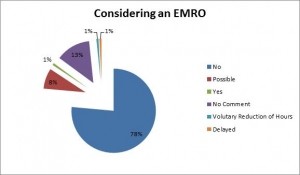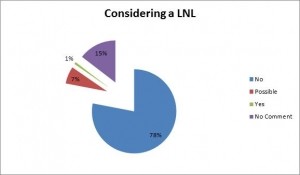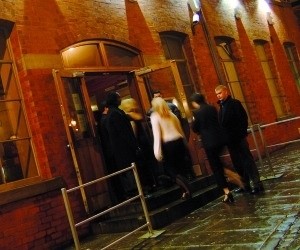Majority of local authorities shun EMROs and late-night levies

The research found that 78% were not planning to introduce a LNL, while 77% are ruling out an EMRO.
Eight percent of councils said an EMRO is a possibility and they are doing further research on the benefits of the measure, and will put it to the committee to decide whether to launch a formal consultation. Seven percent said an LNL is possible in their area.
Under an EMRO, pubs and clubs cannot trade during a designated period between midnight and 6am. The LNL is a tax levied on late-night operators.
On the possibility of introducing either measure, John Gaunt said: "A common trend was that a licensing policy review would be undertaken before any decision was made. This is supported by a legal view that such a policy review is a necessary prerequisite.
John Gaunt said those councils that are looking at EMROs include Hartlepool, which will hold a hearing on the proposal in May, and Blackpool, whose consultation has been delayed. Consultations on the LNL in Newcastle and Milton Keynes end on 30 April and 18 May respectively.
The solicitors highlighted Great Yarmouth in Norfolk as one area where an EMRO has probably been avoided by getting operators to agree to close voluntarily. The council said: "There are a few key premises within the Great Yarmouth area authorised to open until 6am. Licence holders of these premises have been consulted by the police and have agreed to a voluntary 4am closure.
"This has been put in place within the last few weeks with minor variations to the premises licences. With these measures in place, it is hoped that an EMRO will not then be necessary."
But John Gaunt warned: "This is a potential risky stance to take as it only takes one rogue operator to apply for a licence, and receive no reasonable objections and you will get a number following suit."
The survey detailed some of the reasons given for not implementing a LNL, such as the "high administrative burden for the local authority" or the council deciding to take a "watching brief" for 18 months, or to see how successful they have been elsewhere.
One council quoted said it prefers to take action via licence reviews or court action against particular premises. "I see no reason to introduce a disguised failed Alcohol Disorder Zone that could technically penalise the good with the ‘not so good’ managed premises."








